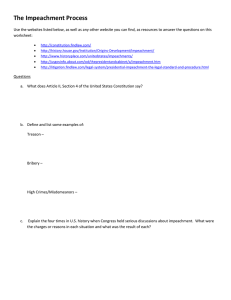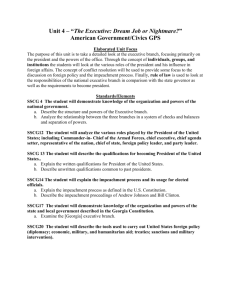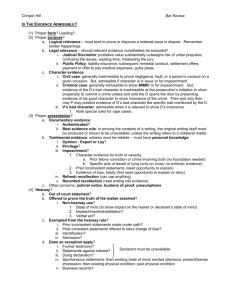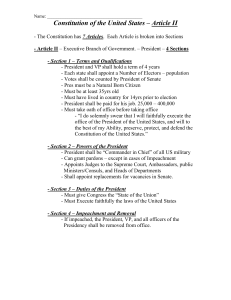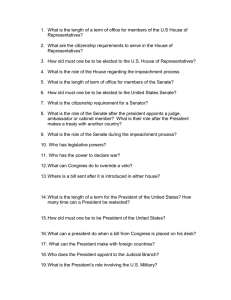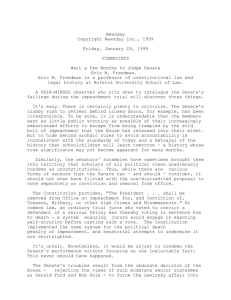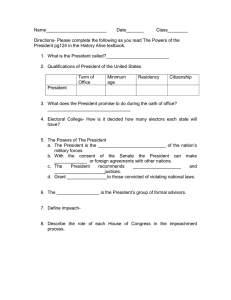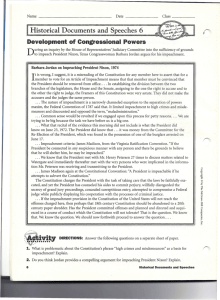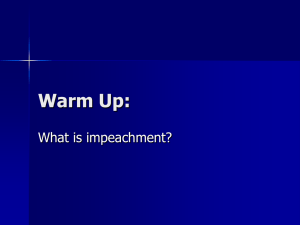Newsday Copyright Newsday Inc., 1998 Tuesday, November 24, 1998 VIEWPOINTS
advertisement
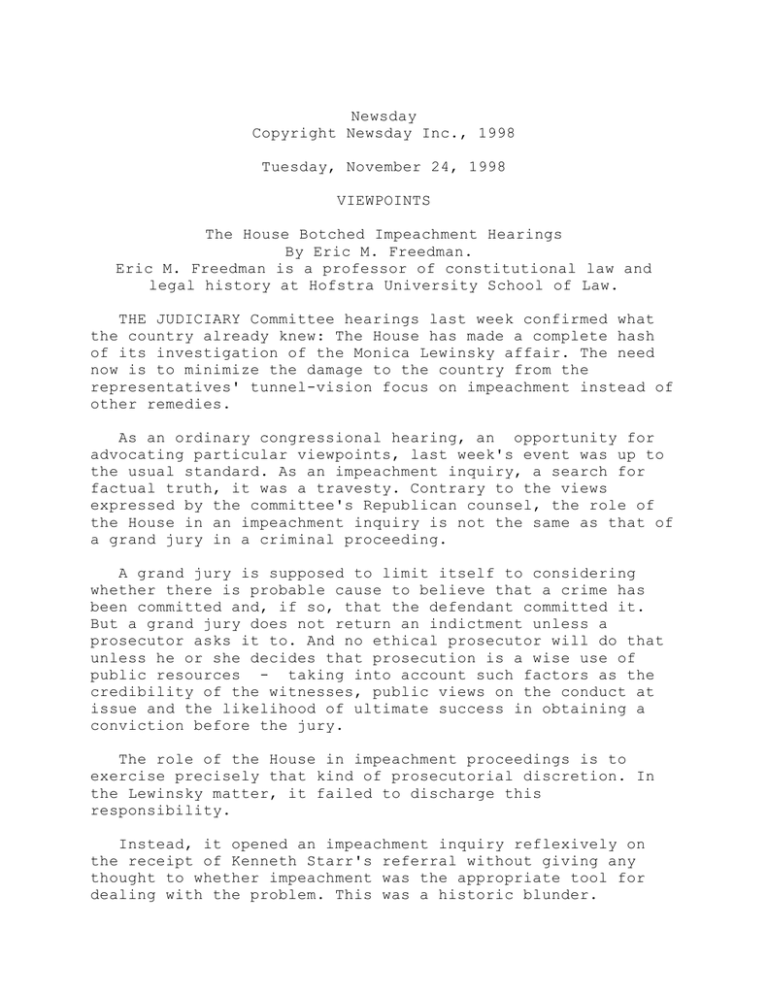
Newsday Copyright Newsday Inc., 1998 Tuesday, November 24, 1998 VIEWPOINTS The House Botched Impeachment Hearings By Eric M. Freedman. Eric M. Freedman is a professor of constitutional law and legal history at Hofstra University School of Law. THE JUDICIARY Committee hearings last week confirmed what the country already knew: The House has made a complete hash of its investigation of the Monica Lewinsky affair. The need now is to minimize the damage to the country from the representatives' tunnel-vision focus on impeachment instead of other remedies. As an ordinary congressional hearing, an opportunity for advocating particular viewpoints, last week's event was up to the usual standard. As an impeachment inquiry, a search for factual truth, it was a travesty. Contrary to the views expressed by the committee's Republican counsel, the role of the House in an impeachment inquiry is not the same as that of a grand jury in a criminal proceeding. A grand jury is supposed to limit itself to considering whether there is probable cause to believe that a crime has been committed and, if so, that the defendant committed it. But a grand jury does not return an indictment unless a prosecutor asks it to. And no ethical prosecutor will do that unless he or she decides that prosecution is a wise use of public resources - taking into account such factors as the credibility of the witnesses, public views on the conduct at issue and the likelihood of ultimate success in obtaining a conviction before the jury. The role of the House in impeachment proceedings is to exercise precisely that kind of prosecutorial discretion. In the Lewinsky matter, it failed to discharge this responsibility. Instead, it opened an impeachment inquiry reflexively on the receipt of Kenneth Starr's referral without giving any thought to whether impeachment was the appropriate tool for dealing with the problem. This was a historic blunder. Historically, the House in declining to impeach Richard Nixon for tax evasion despite evidence that he had committed it -has held that impeachment should be limited to offenses involving an abuse of presidential power. As a matter of both due process to the accused and appropriate operation of the government, disputed questions of ordinary criminality, such as lying to a grand jury, should normally be handled in the criminal justice system. To be sure, one could hypothesize a situation in which a president's personal conduct was so clearly proved and so extreme - for example, a murder in the Oval Office captured on videotape that impeachment would be appropriate. But this was clearly not that case. Nor was there ever any prospect that either the Republicans (who knew how shaky the key fact witnesses were) or the Democrats (who wished to avoid the sordid details) would conduct the sort of hearing that an impeachment inquiry demands one showing wrongful presidential conduct through direct evidence such as the testimony of Monica Lewinsky or Betty Currie. Moreover, the House has never impeached a president unless it was quite certain, based upon a strong public consensus in favor of removal from office, that there would be a conviction in the Senate. That factor, too, was absent here. Under these circumstances, Starr should have been encouraged to follow the route laid out in the independent counsel statute and to file a report with the court detailing his activities and the status of his investigation of the president. In the context of a hearing on such a report, all the questions the representatives asked last week would have been perfectly appropriate. So would Starr's appearance itself, thus obviating the issue that led his ethics adviser, Samuel Dash, to resign. The danger of long-term damage to the country from the House's misguided attempt to fit the round peg of the Lewinsky investigation into the square peg of an impeachment inquiry is two-fold. First, the outcry may hit the wrong target. Congress may blame the independent counsel statute for its own misjudgments, and let the law expire next June. That would be a mistake. Although there are several modifications that might reasonably be made, the underlying structure of the statute providing prosecutorial independence and the flexibility to employ the devices of impeachment referral, report or indictment depending on the situation - is sound and should be retained. Second, the outcry may fail to hit the right target. Virtually lost in the present quagmire is the underlying political reality that the country overwhelmingly considers Bill Clinton's conduct to have been thoroughly reprehensible. As he himself has agreed, he deserves public condemnation. Competent political leaders could have brought this about through some form of censure. And, indeed, a variety of commentators urged precisely this course before the House chose the impeachment path. But the Republicans nevertheless decided to tie themselves to the wild horse of impeachment, from which they are now desperately trying to dismount. The result is a real risk that when the history of Clinton's administration is written it will not record that he suffered a well-deserved political rebuke for his misconduct, but instead that he gained a political victory by avoiding impeachment. In public life, as in the home workshop, the result of using the wrong tool is a botched job.
